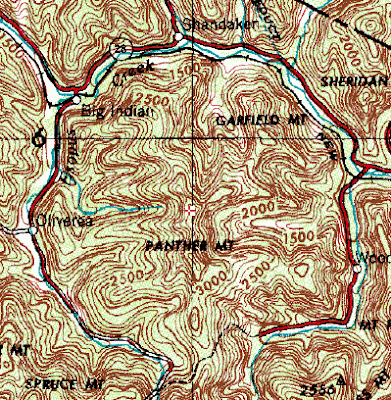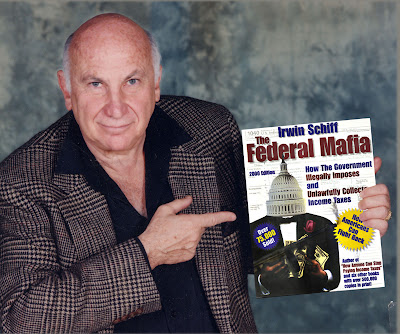Who Is Aaron Russo?
Aaron Russo (February 14, 1943 – August 24, 2007) is (was) an American entertainment businessman, film maker, and libertarian political activist.
Born in Brooklyn into a Sephardic Jewish family originally from Italy, Russo was raised on Long Island. He began promoting rock and roll shows at local theaters while still a high school student. He then worked for his family's undergarment business.
Five years later the twenty-four-year-old entrepreneur opened his own nightclub in Chicago called the Electric Theater/Kinetic Playground. The club became a driving force in the music business, where Aaron helped create the careers of many legendary performers, such as Led Zeppelin, whom he brought to America for the first time. He also promoted some of the Sixties' most successful rock acts, including The Who, Janis Joplin, The Grateful Dead and Jefferson Airplane.
In 1972, Russo began his seven-year partnership with Bette Midler, who became a superstar during his management of her career. In 1975 he produced the Tony award-winning Clams on the Half-Shell Revue, which starred Bette Midler and Lionel Hampton. At the time it was the most successful ten-week Broadway revue in history, grossing more than $1.8 million. While serving as Midler's manager, Russo created and managed The Manhattan Transfer. Later his roster would include such personalities as David Keith, Frederic Forrest, Susan Sarandon and other notable clients.
When Russo turned to producing feature films, his production of The Rose, introduced Bette Midler to motion picture audiences. Midler received a nomination for the Academy Award for Best Actress. The Rose is considered by many to be the classic rock 'n' roll film. Russo also produced Trading Places, starring Eddie Murphy and Dan Aykroyd, which has become a Christmas classic, and Teachers, starring Nick Nolte, Morgan Freeman, and Ralph Macchio.
Russo received numerous awards for his achievements. They include a Grammy, a Tony, an Emmy (for producing the best television special of 1977, Ol' Red Hair is Back, starring Bette Midler, Dustin Hoffman, and Emmett Kelly), plus many gold and platinum records. His films were nominated for six Academy Awards, as well as seven Golden Globes. His films have won three Golden Globes, as well as the Image Award.
In the 1990s he ran into trouble with the Internal Revenue Service (IRS) and eventually found himself with $2 million dollars in liens against him. Years later in 2005, he wrote, produced, and directed a feature film/documentary titled America: Freedom to Fascism, billed as an exposé of the IRS. He also took to describing himself as a "freedom fighter."
Russo made his first run for political office in 1998, when he ran in the Republican party primary for the governor of Nevada. He came in second in the primary, winning 25.9% of the vote in a four-way race. He then endorsed the Democratic candidate, Las Vegas mayor, Jan Laverty Jones, who lost to Republican Kenny Guinn. Russo then joined the Libertarian Party in 1999, saying it was his "true political home." In 2000, he delivered a fiery speech at the Libertarian National Convention, calling Libertarians the "last, best hope for freedom in America." Russo subsequently planned to run for governor in 2002 as a Libertarian, but he was temporarily sidelined by cancer.
In January 2004, Russo announced he was seeking the Libertarian Party's nomination to run for the President of the United States. Russo told LP News (February 2004) he was running because the United States is "heading to totalitarianism. I have a sincere belief [in] the Constitution and Bill of Rights as envisioned by Thomas Jefferson, James Madison, and Ben Franklin. Unfortunately, neither political party respects the vision of our Founding Fathers, and these documents have been relegated to the dustbin. I want to dust them off and restore them to their proper role in our lives." At the Libertarian National Convention in May 2004, Russo received 258 votes, as opposed to 256 for Michael Badnarik and 246 for Gary Nolan, a majority being required to receive the presidential nomination. Russo went on to be defeated on the third and final ballot by nominee Badnarik by a vote of 423-344. While some questioned his style, others argued his media experience would enable him to pose a serious threat to incumbent President George W. Bush, pulling enough votes from otherwise likely Bush voters to affect the outcome in battleground states, in the same way that Ralph Nader was considered to be in relation to Democrat John Kerry.
In 2006, Russo wrote, produced, directed, and starred in a documentary feature film entitled America: From Freedom To Fascism. The film questioned the legality of the income tax and attacked the "growing authoritarianism" in American life. The film was made after Russo had over $2 million of tax liens filed against him by the Internal Revenue Service, the state of California, and the state of New York for unpaid taxes. In an interview with the New York Times, however, Russo refused to discuss the liens, saying they were not relevant to his film.
On January 14, 2007, Russo announced his full support for U.S. Congressman Ron Paul's 2008 presidential bid. Russo also joined the advisory board of Jews for Ron Paul 2008.
In a 2006
interview with Alex Jones, Russo discusses his tax lawsuit and makes a number of claims about Nicholas Rockefeller. Russo talks about a friendship with Rockefeller that began during Russo's 1999 gubernatorial campaign, that led to an invitation to join the Council on Foreign Relations and revelations about a forthcoming New World Order, including an imminent "event" as a pretext for war in the Middle East and a North American Union with a single currency, among others. He stated he was told this by
Nicholas Rockefeller "eleven months before 9/11 ever happened".
Russo died of bladder cancer at Cedars-Sinai Medical Center in Los Angeles, California on August 24, 2007, at age 64, following a six year battle with the disease. Russo said his goal was to "try and get the word out to the public about what's happening to America -- and give them an opportunity to try to change things." For an epitaph on his headstone after his death, he told the Las Vegas Sun (November 4, 1999), "I want it to say, 'Freedom Fighter.' "
Downloadable audio interview here! Buy the DVD here!
....................
In 1994, Russo created a one-hour, politically themed TV show entitled Aaron Russo's Mad as Hell. The program, part stand-up comedy monologue and part slash-and-burn political rant, offered Russo's views where he criticized NAFTA, The War on Drugs, the concept of a National Identity Card, IRS, Social Security, and the federal budget. When he was unable to find a syndicator for the show, Russo sold it as a video.
Watch the video here!
Mad As Hell!
Buy the DVD here!

 The impact is estimated to have occurred 375 million years ago, during the Devonian period, when much of what is now the Catskills was either river delta or a shallow sea. The crater lies 2,640 feet below the surface, is 6 miles wide, and lies directly under the mountain. The meteorite that struck is believed to have been roughly one-half mile wide, striking with a force equivalent to 11 trillion tons of TNT.
The impact is estimated to have occurred 375 million years ago, during the Devonian period, when much of what is now the Catskills was either river delta or a shallow sea. The crater lies 2,640 feet below the surface, is 6 miles wide, and lies directly under the mountain. The meteorite that struck is believed to have been roughly one-half mile wide, striking with a force equivalent to 11 trillion tons of TNT.








